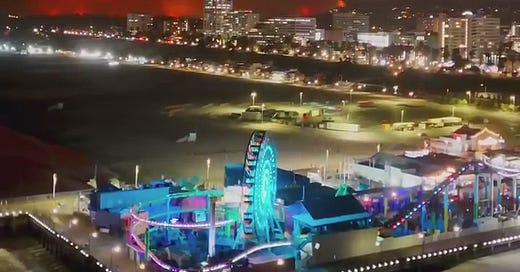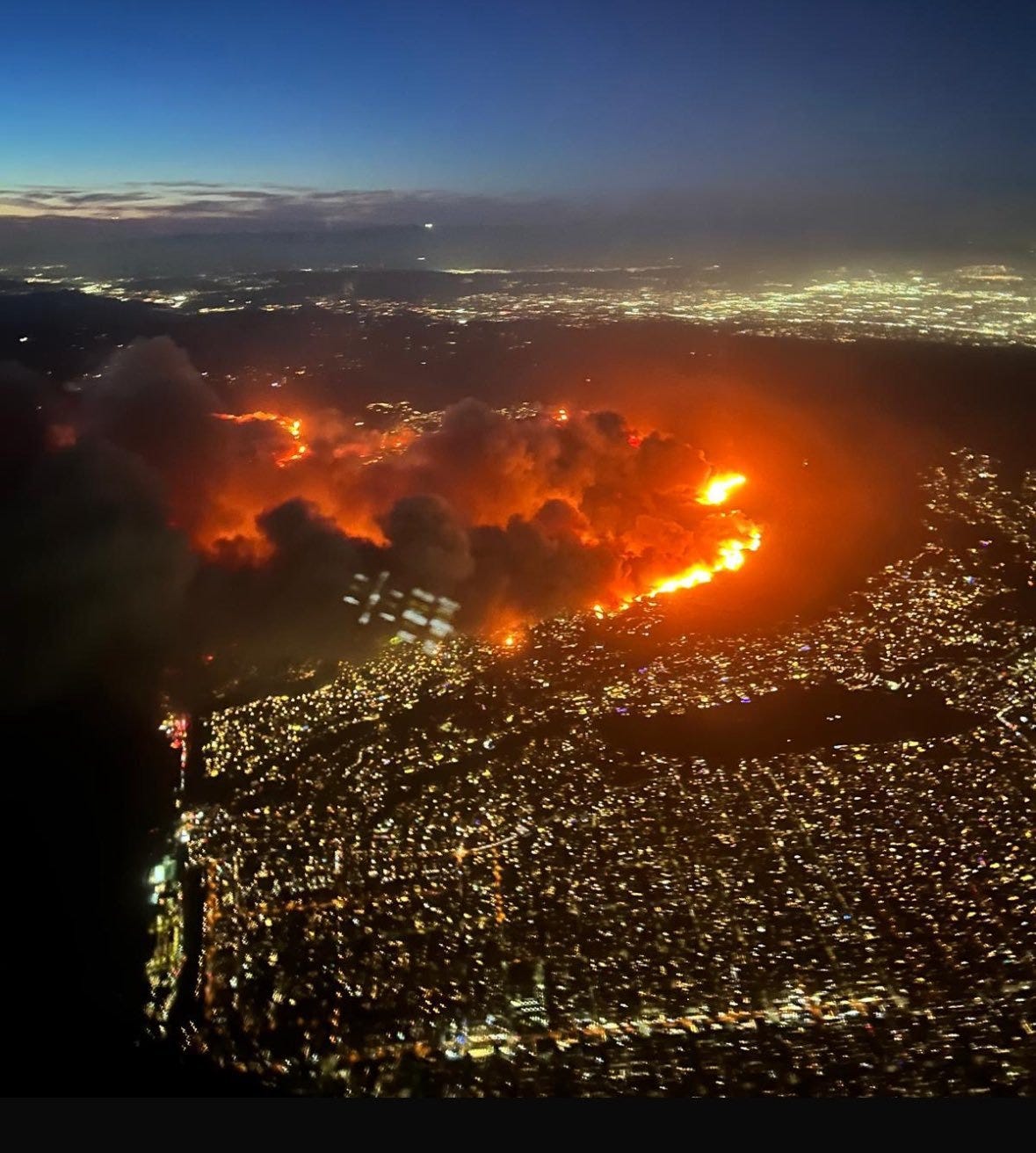Southern California is currently grappling with several major wildfires, with the Palisades Fire and Eaton Fire being the most significant. The Palisades Fire, located in Pacific Palisades, has burned 23,707 acres and is only 11% contained as of early this morning. The Eaton Fire, affecting North Pasadena and Altadena, has scorched 14,117 acres with 27% containment. These fires have led to the tragic loss of at least 16 lives, the destruction of over 12,000 structures, and forced evacuations for more than 153,000 people.
The fires have caused significant disruptions, including road closures, power outages, and water supply issues, particularly in areas like Pacific Palisades where a "Do Not Drink" notice has been issued due to ash and debris contamination. Evacuation orders are in place, and curfews have been established in some of the affected areas to enhance public safety and prevent looting.
Response and Aid: Over 12,000 personnel, including firefighters from California and out-of-state, are actively engaged in fighting these fires. Federal assistance has been secured, including financial support for immediate needs like food and debris removal. President Biden has also approved disaster relief for the state, providing resources like aircraft and military personnel.
Weather and Fire Conditions: The region is experiencing Santa Ana winds, which are expected to intensify, increasing the risk of further fire spread. After a brief calm, these winds could gust up to 70 mph in mountain areas, with a critical fire weather warning in place due to low humidity and high winds.
There has been an overwhelming community response, with donations pouring in, though officials have requested that no more physical donations be brought to fire stations due to operational impacts. For those looking to help, financial contributions to vetted charities are recommended. For personal safety, residents are advised to stay informed about evacuation zones, prepare an evacuation plan, and be ready to leave at short notice.
Looking Forward: Governor Newsom has announced a tax filing extension for affected residents, recognizing the long-term recovery needed. The focus is now on containment, safety, and beginning the recovery process for those who've lost homes and lives.
Immediate Assistance
Emergency Shelters:
The American Red Cross has opened multiple shelters across the affected areas. You can find shelter locations by texting SHELTER and your ZIP code to 43362, visiting redcross.org/shelter, or calling 1-800-RED-CROSS (1-800-733-2767).
Food and Supplies:
The Los Angeles Regional Food Bank is mobilizing to provide food assistance. Check their map for food distribution points. Some local restaurants are offering free meals to evacuees and first responders.
Global Empowerment Mission provides emergency aid supplies, including nonperishable food, hygiene products, water, generators, medical supplies, and temporary shelters.
Healthcare and Mental Health Support:
Direct Relief is providing N-95 masks, medicine, and other resources to health-care agencies and first responders.
The Disaster Distress Helpline offers crisis counseling at 1-800-985-5990 or by texting "TalkWithUs" to 66746.
Counseling and Psychological Services (CAPS) at UCLA for students facing distress.
Animal Care:
In Defense of Animals offers support for free, temporary housing for wild or domestic animals. Contact Sammy Zablen at 310-869-2383.
Vetster provides free online veterinary appointments for affected pets.
Financial Assistance
FEMA Individual Assistance:
Residents can apply for financial aid for temporary housing, home repairs, personal property replacement, and other disaster-related needs at DisasterAssistance.gov or by calling 1-800-621-3362.
California Fire Foundation:
Provides $250 Disaster Relief cash cards to survivors through firefighters and community-based organizations.
Charitable Donations:
Donations can be made to organizations like the California Community Foundation's Wildfire Recovery Fund, Direct Relief, and the Salvation Army's emergency disaster relief.
Long-term Recovery
Housing and Recovery Support:
HUD's Community Development Block Grant–Disaster Recovery (CDBG-DR) program provides funding for low and moderate-income communities for rebuilding efforts.
Lyft's Disaster Response program offers free and discounted rides to help with mobility during recovery.
Federal and State Programs:
Various grants for hazard mitigation and rebuilding through FEMA's Hazard Mitigation Grant Program (HMGP) and Building Resilient Infrastructure and Communities (BRIC) program.
Volunteering and Community Support
Volunteer Opportunities:
Opportunities to volunteer through organizations like the UCLA Volunteer Center, which coordinates relief efforts.
Community Resources:
The Mutual Aid Los Angeles Network provides details on housing, food, and animal assistance.
Information and Updates
Official Websites:
Visit CA.gov/LAfires for a centralized resource hub from state, local, and federal government.












Share this post